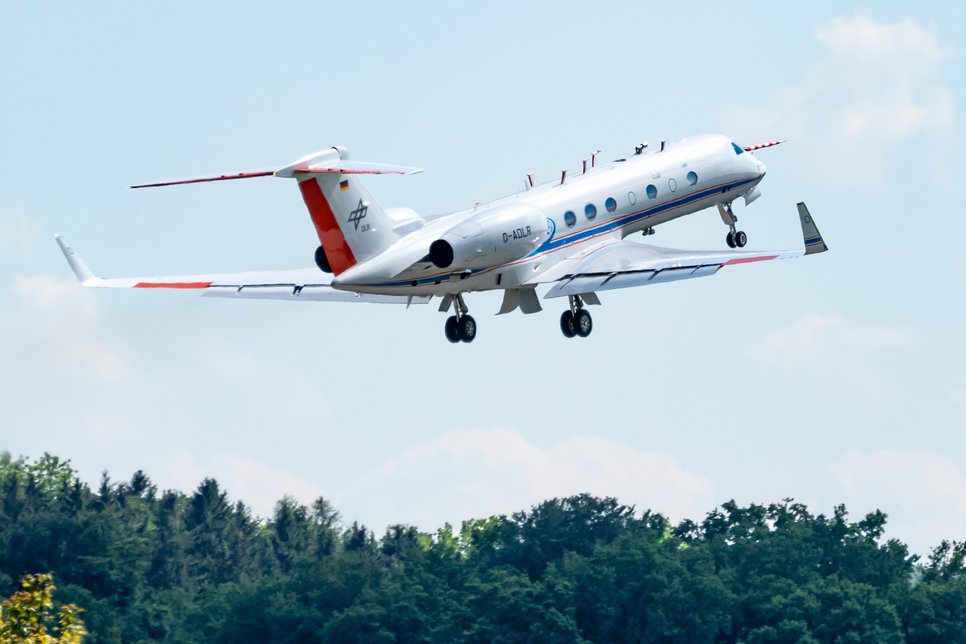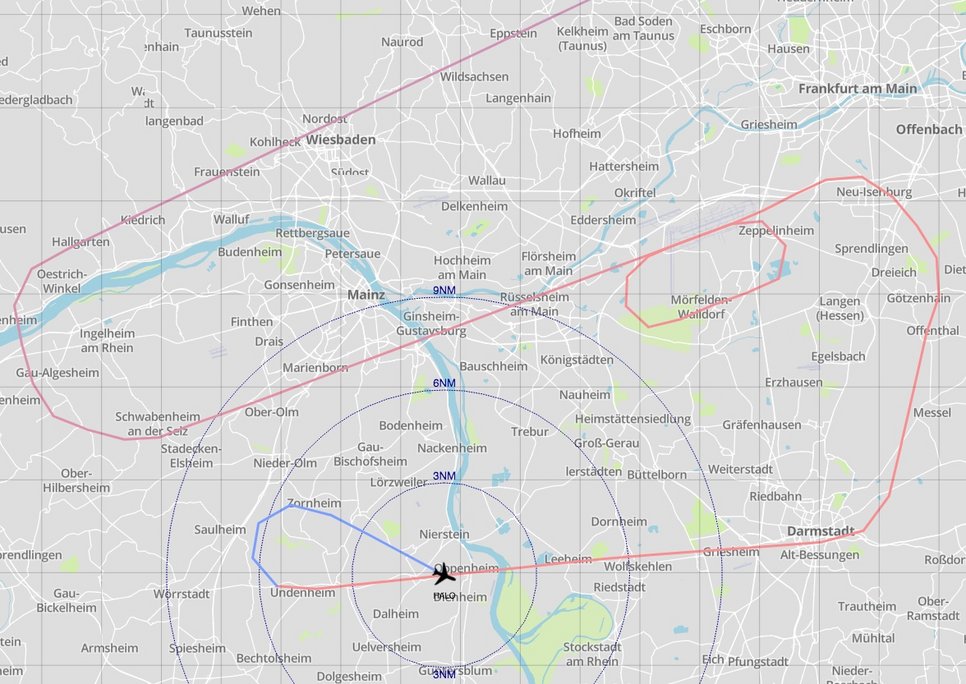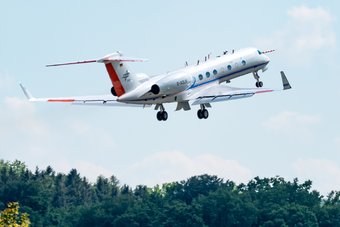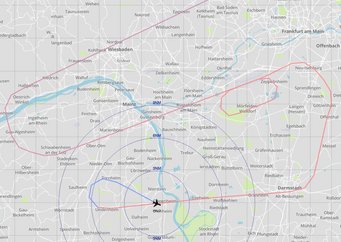Cleaner air as a result of coronavirus lockdown
Lockdowns in early summer 2020 meant that the amount of soot in the atmosphere, which is harmful to the climate and to health, almost halved
Joint press release of the Leibniz Institute for Tropospheric Research (TROPOS) and the Max Planck Institute for Chemistry
During the first lockdown of the coronavirus pandemic, soot concentrations in the atmosphere over Western and Southern Europe almost halved. This is apparent from the comparison of two measurement campaigns carried out by the German research aircraft HALO in 2017 and 2020. A new study suggests that approximately 40 percent of the reduction is due to decreased anthropogenic emissions. These findings reflect the major impact of human activity on air quality and the significance of soot as an important air pollutant and climate driver in the Anthropocene, write researchers from the Max Planck Institute for Chemistry, the University of Bremen, Johannes Gutenberg University of Mainz, the German Aerospace Center, Leipzig University and Leibniz Institute for Tropospheric Research (TROPOS), in the specialist journal Atmospheric Chemistry and Physics (ACP).

During the COVID-19 lockdowns at the start of 2020, the research team flew over countries including Germany, the Benelux States, the United Kingdom, France, Spain, and Italy – i.e. large parts of Central, Western and Southern Europe. As part of the BLUESKY campaign, they recorded the mass and particle concentration of soot in the lower troposphere, with the aid of the research aircraft HALO (High Altitude and Long range), in both the horizontal and vertical planes. The team then compared the results with measurements from July 2017. At that time the researchers investigated the region under "normal", pre-coronavirus conditions, as part of the EMeRGe EU campaign.
The comparison shows a significant improvement in air quality as a result of the pandemic. On average the amount of soot in the lower troposphere in Southern and Western Europe dropped by 41 percent. This huge figure was verified with the aid of traffic data and information about fuel consumption during the lockdown periods. The researchers attribute this drop to two main factors: ongoing efforts to reduce soot emissions in Germany and Europe (three to nine percent), as well as limited travel as a result of the pandemic lockdowns, which accounted for between 32 and 38 percent. The comparison data were also entered into an Earth System Model in order to establish what the effects of reduced soot emissions in Europe might be on the climate in the long term.

Soot is harmful to health and contributes to global warming
The background is that soot close to the ground is not just a particularly harmful component of the fine particulates. In the atmosphere the tiny particles contribute to global warming, because they heat up due to their dark-colored surface and release heat into their surroundings. But in contrast to long-lasting greenhouse gases such as carbon dioxide, soot is short-lived and only stays in the atmosphere for a few days to weeks.
"Reduced soot emissions as a result of less burning of fossil fuels such as diesel, coal, oil, and wood would also improve the health of millions of people relatively quickly. Our measurements and model calculations also show that less soot in the atmosphere makes an important contribution to curbing climate change," explains Mira Pöhlker from TROPOS in Leipzig. The atmospheric scientist, who also carries out research at the Max Planck Institute for Chemistry in Mainz, hopes that some behavioral changes from the coronavirus period, such as more video conferencing, working from home, and the associated reduction in flights and commuting, will be maintained. “I think that the pandemic has provided a trigger for a change in trends".
Pöhlker and the team are currently working on a new study and also bringing psychologists on board. They want to find out whether offers such as the German 9-Euro-ticket could actually lead to an enduring change in people's travel behavior. "As well as a general reduction in traffic, it is also important to provide incentives to use modes of travel with lower emissions. In my opinion, heavily subsidized public transport is an important stimulus, and its effect on air pollution now needs to be quantified."
Background to the study
In order to limit the rapid spread of the coronavirus SARS-CoV-2 and to fight the pandemic, most European countries reacted with significant limitations on travel and economic activities in the first six months of 2020. The lockdowns reduced the burning of fossil fuels, one of the main sources of soot in the atmosphere, by around a third at the start of 2020. This decrease is attributed to 90 percent less air traffic in Europe and a significant reduction in road traffic. Emissions in Europe have never fallen so quickly in the decades since the Second World War. The lockdowns gave the atmospheric scientists a unique opportunity to accurately quantify air pollution over a large area with profiles of the distribution in the lower troposphere. (TA+SB)

